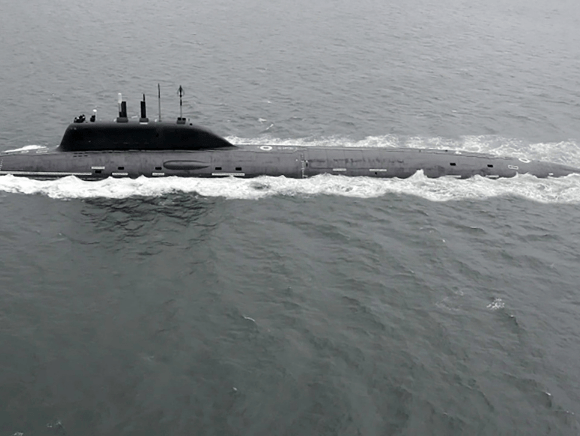The Ukraine conflict raises the issue of the United States’ critical need to modernize its nuclear weapons. Recently, in response to economic sanctions placed on Russia by the US and its European allies, Vladimir Putin put the Kremlin’s nuclear capability on high alert. This bizarre and disproportionately aggressive move on Putin’s part placed in perspective how quickly a conventional arms war can devolve into a nuclear confrontation. The move to an unthinkable option on Moscow’s part raises the question: Is the US nuclear capability ready if it should be needed? For Cold War warriors, this is familiar ground.
The US cannot stand idle and fail to keep up with its adversaries. America’s nuclear capability and deterrence strategy are currently under review, and results of that review will be published in the soon-to-be-released National Defense Strategy. Presently, US strategic deterrence rests with a combination of nuclear-capable bombers like the nearly 75-year-old B-52 bomber, B-2 Spirit stealth bomber, nuclear missile submarines, and the ground-based Minuteman III Intercontinental Ballistic Missiles (ICBM) that came into service a half-century ago.
The Defense Department does have nuclear modernization programs, including a new strategic stealth bomber in development, the B-21, an advanced follow-on ICBM called the Ground-Based Strategic Deterrent, and a leading-edge Nuclear Command, Control, and Communications (NC3) system. However, none of these modernization programs will be fully operational until the end of this decade. There is an existential nuclear peril now.
Putin’s Arsenal
The Kremlin’s nuclear capability and threat to use it largely depends on a nuclear modernization program roughly 80% completed. Russia’s campaign to enhance existing and develop new nuclear capability became apparent when, “… in March 2018, Russian President Vladimir Putin announced that Russia was developing new types of nuclear systems … These new Russian systems include, among others, a heavy ICBM with the ability to carry multiple warheads, a hypersonic glide vehicle, an autonomous underwater vehicle, and a nuclear-powered cruise missile,” according to U.S. Naval Institute News.
There is another aspect to Putin’s going to a higher state of nuclear readiness. The Kremlin could be motivated by perverse doctrinal logic referred to as “escalate to de-escalate.” The idea is to “threaten to use nuclear weapons if it were losing a conflict with a NATO member, in an effort to convince the United States and its NATO allies to withdraw from the conflict,” Amy F. Woolf, specialist in nuclear weapons policy, explained in a Congressional Research Service report. If so, Moscow would have taken this step if it thought its invasion was not going well and the US and NATO would be cowed into backing away from sanctions and support for Ukraine. The western powers did not take the bait, this time.
 Russia is the most immediate nuclear menace, readying the Kremlin’s strategic nuclear forces and conducting the recent nuclear capability exercise in February. However, when combined with Moscow’s new, closer relationship with China, the correlation of forces equation may favor a Moscow-Beijing team. The People’s Republic of China (PRC) and North Korea by themselves loom large as emerging strategic nuclear competitors. “The PRC is investing in a triad, implementing a launch-on-warning posture with advanced command and control architecture and increasing its stockpile [of nuclear warheads],” Sasha Baker, the deputy undersecretary of defense for policy, told lawmakers in congressional testimony.
Russia is the most immediate nuclear menace, readying the Kremlin’s strategic nuclear forces and conducting the recent nuclear capability exercise in February. However, when combined with Moscow’s new, closer relationship with China, the correlation of forces equation may favor a Moscow-Beijing team. The People’s Republic of China (PRC) and North Korea by themselves loom large as emerging strategic nuclear competitors. “The PRC is investing in a triad, implementing a launch-on-warning posture with advanced command and control architecture and increasing its stockpile [of nuclear warheads],” Sasha Baker, the deputy undersecretary of defense for policy, told lawmakers in congressional testimony.
To deter adversaries either singly or in some combination, the U.S. must have a credible nuclear capability that is modern, reliable, and effective. There must be complete confidence the US nuclear arsenal will have the devastating effect on an enemy that is intended. There can be no doubt on the part of an adversary of its assured destruction, otherwise deterrence loses its impact. Putin threatening a nuclear conflict causes one to wonder — does he doubt US capability or resolve?
The views expressed are those of the author and not of any other affiliation.
~ Read more from Dave Patterson.





